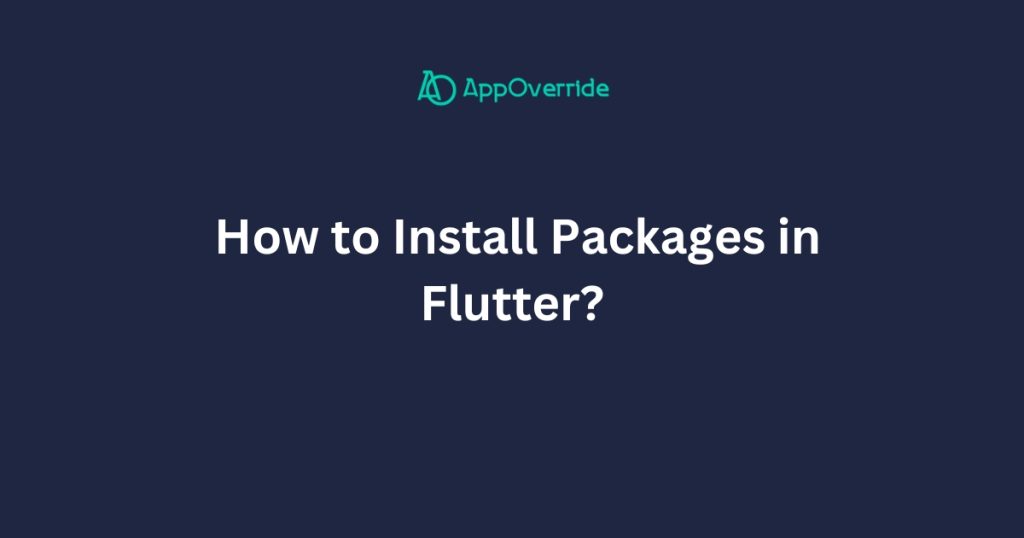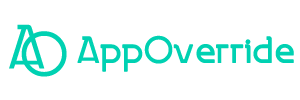In this guide, we’ll explore how to install packages in Flutter and leverage them within your projects.
Flutter, Google’s UI toolkit for building natively compiled applications for mobile, web, and desktop from a single codebase, offers a vast ecosystem of packages to extend its functionality.
These packages provide pre-built solutions for common tasks, saving developers time and effort.
Table of Contents

Step 1: Finding Packages for Install Packages in Flutter
The first step is to identify the package you need for your Flutter project. You can search for packages on the official Flutter packages website (https://pub.dev/).
This website hosts thousands of Flutter packages covering various functionalities like UI components, state management, HTTP requests, and more.
Step 2: Install Packages in Flutter through pubspec.yaml
Once you’ve identified the package you want to use, you need to add it as a dependency in your project’s pubspec.yaml file. Open the pubspec.yaml file located in the root directory of your Flutter project. Under the dependencies section, add the package name along with the desired version.
dependencies:
flutter:
sdk: flutter
package_name: ^version_number
Replace package_name with the name of the package you want to install and version_number with the desired version or version range. Using the caret (^) symbol before the version number allows Flutter to install the latest compatible version of the package when you run flutter pub get.
Step 3: Running flutter pub get
After adding the package dependency to your pubspec.yaml file, save the changes. Then, open your terminal or command prompt, navigate to your project directory, and run the following command:
flutter pub get
This command fetches the specified package and its dependencies and makes them available for use within your Flutter project.
Step 4: Importing the Package
Once the package is installed, you can import it into your Dart files and start using its functionality. Use the import statement at the top of your Dart file to import the package.
import 'package:package_name/package_name.dart';
Replace package_name with the actual name of the package you installed.
Step 5: Using the Package
Now that you’ve imported the package, you can use its classes, functions, and widgets in your Flutter project as needed. Refer to the package’s documentation or examples to understand how to utilize its features effectively.
Two Types of Dependencies for Install Packages in Flutter
In Flutter’s pubspec.yaml file, you can specify two types of dependencies:
- regular dependencies
- dev dependencies.
Understanding the difference between these two types is essential for managing your Flutter project effectively.
Regular Dependencies
Regular dependencies, often referred to simply as “dependencies,” are packages that your Flutter project requires to run correctly.
These packages are essential for the functionality of your application and are included in the final build when you compile your project for deployment. That we talk in above.
for eg:
dependencies:
flutter:
sdk: flutter
http: ^0.14.0 # Regular dependency for making HTTP requests
Regular dependencies are added under the dependencies section in your pubspec.yaml file. When you run flutter pub get, Flutter fetches these packages and their dependencies, making them available for use in your project.
Dev Dependencies
Dev dependencies, short for “development dependencies,” are packages that are only needed during the development phase of your Flutter project.
These packages are not essential for the functionality of your application in production but are helpful during development for tasks such as testing, code generation, or static analysis.
Dev dependencies are added under the dev_dependencies section in your pubspec.yaml file. When you run flutter pub get, Flutter fetches regular dependencies as well as dev dependencies, making them available for use during development.
for eg:
dev_dependencies:
flutter_test:
sdk: flutter
mockito: ^5.0.0 # Dev dependency for mocking objects in unit tests
Regular dependencies are essential packages required for the core functionality of your Flutter application and are included in the production build, while dev dependencies are only needed during development to assist with tasks like testing and code generation and are not included in the production build.
Also Read:
Conclusion
Installing packages in Flutter is a straightforward process that significantly enhances the capabilities of your applications.
By leveraging the vast ecosystem of Flutter packages, developers can expedite development and deliver feature-rich applications with ease.
Remember to regularly update your dependencies to access the latest features and improvements provided by the package developers.
